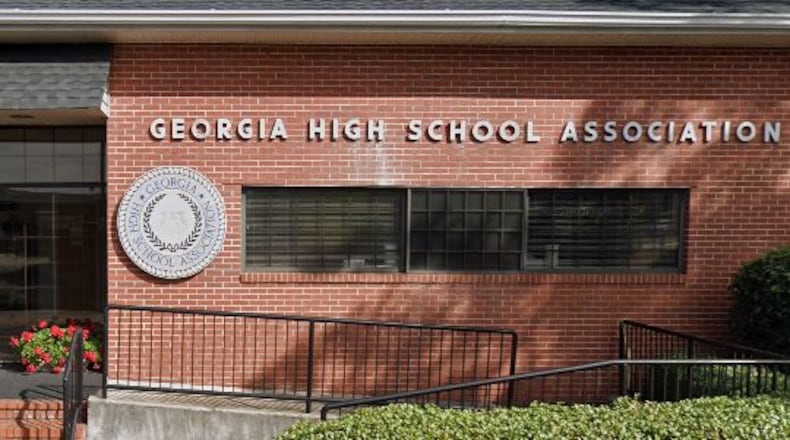The Georgia High School Association can rest easier that it won’t be taken over by the General Assembly any time soon, but one stern message lingers this legislative session, according to GHSA executive director Robin Hines: The cost of travel, both in gas money and class time missed, is the most prevalent lawmaker concern.
“The issue that comes up the most is travel,’’ Hines said. “I agree with them that it’s a problem.”
Hines believes the solution is fewer classifications. He prefers six to the current eight.
Hines has spent 20 days in Atlanta with state lawmakers this year largely in response to ominous Senate Bill 328, introduced in January. The bill, sponsored by Sen. Jeff Mullis of Chickamauga and eight other Republicans, threatened to abolish the GHSA and form another high school governing body while also making transfer students immediately eligible for sports. A similar bill would’ve forced public and private schools to compete in separate classes.
The bills’ practical objectives were to get the GHSA’s attention, which they did. Hines has met with legislators all winter, taking criticism while also getting a chance to explain GHSA policies and decisions, such as the one to have public and private schools playing together again in Class A starting in 2022-23 and why transfer students are required to sit out sports for a year unless they make a bona fide move into their new school districts.
Hines’ efforts seem to have paid off. This week, senators introduced a substitute bill without any of the more troubling original provisions of the original bills but calling for a restructured legislative oversight committee to work more closely with the GHSA in the future, which Hines welcomes, and for the GHSA to pay for schools’ travel costs to sports contests that take place more than 75 miles from home. Hines calls that part impractical.
“If you’ve got 420 football-playing schools, and if each one has two trips over 75 miles, and you give them $500, which is a very modest estimate, by the end of the regular season, that would be over $425,000, and then you’ve got 20 more sports to do,’’ Hines said. “That’s not doable.’’
Instead, Hines is pushing his association to reduce the number of classifications to six from eight as a travel-cutting solution. That would require approval from the GHSA’s executive committee or board of trustees and likely wouldn’t be effective until 2024-25.
The GHSA has worked with eight classifications since 2020. After the most recent reclassification, ratified in January and effective 2022-23, the GHSA will have 11 regions (out of 64) with only five schools or fewer. The smaller the region, the farther the schools are from each other geographically. Fewer schools also means more out-of-region games that also typically lead to more travel. Having six classes, with 48 regions instead of the current 64, would result in about nine schools per region.
“We have too many classes and too many schools isolated (geographically) from other schools in their class,” Hines said. “I’ve advocated for less classifications since I’ve been here. I think the time for that is now.’’
As recently as 1999, the GHSA had only four classifications and 32 regions. Class expansion has occurred in part because of increasing GHSA membership but mainly because of the added playoff revenue and championship opportunities that come with more classes. That’s popular among member schools. In the state basketball tournament, which is finishing up this week, 512 boys and girls teams qualified from the GHSA’s roughly 460 schools.
This week’s substitute bill also would restructure the existing legislative oversight committee, currently made up entirely of legislators, to one with members also appointed by the governor, lieutenant governor and speaker of the house and associations for state superintendents, school boards, coaches and officials. The goal would be to keep GHSA in closer touch with a broader range of the state’s stakeholders. The oversight committee has no voting rights in GHSA decisions.
“Any communication we can have to address problems together is great,’’ Hines said. “It would lead to a better understanding of how process works, that the GHSA is a representative body much like the General Assembly. It’s run through committees and sub-committees and then a full committee that votes on bylaws and ratifies reclassification. Communication is both ways. If we can develop that kind of relationship, it’s better for all.”
About the Author
The Latest
Featured


